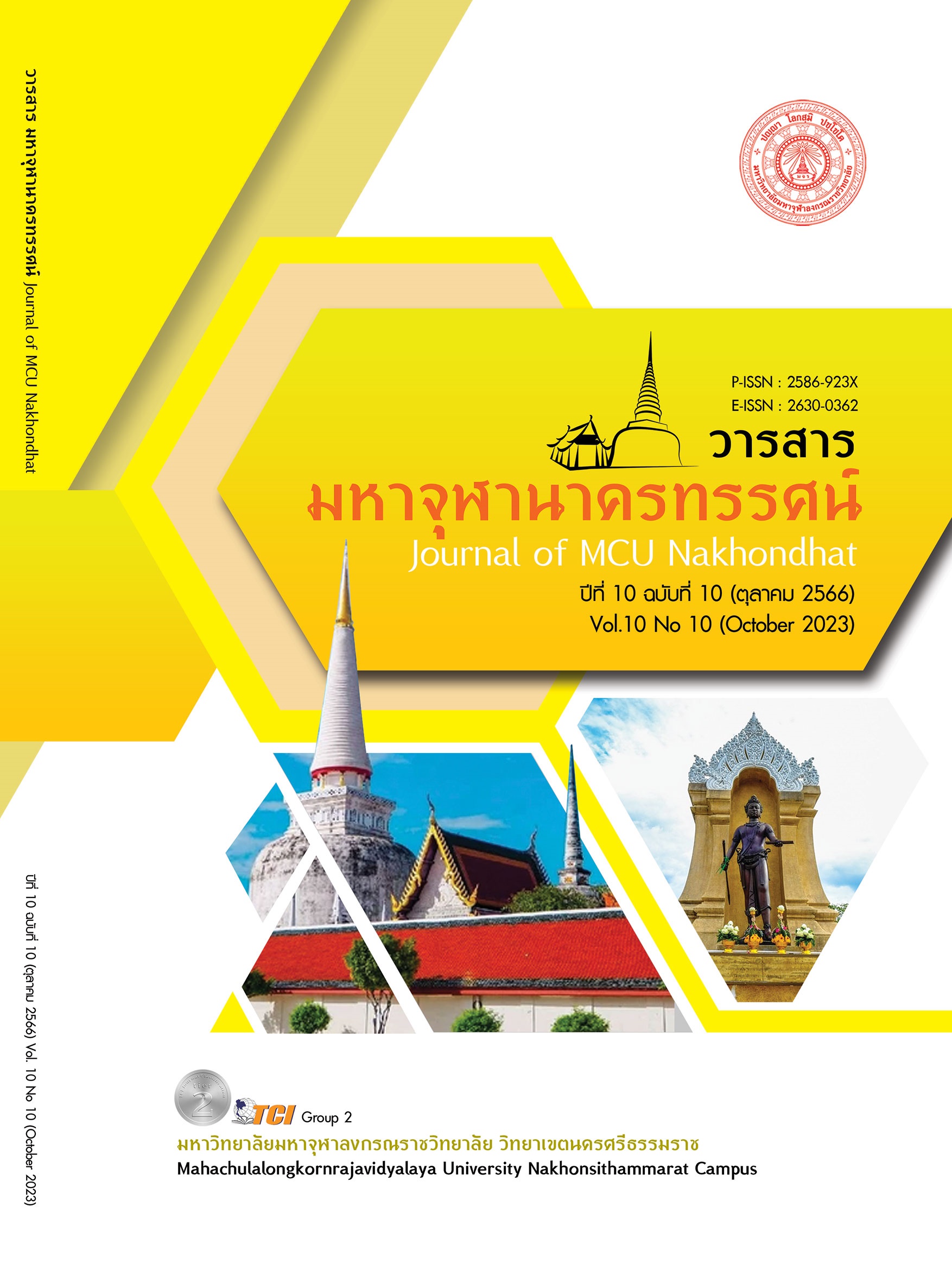DIETARY SUPPLEMENTS FOR HEALTH
Main Article Content
Abstract
This academic article aims to present information about the form of food products and types of dietary supplement products. The documentary research process followed Scott's approach, selecting relevant documents based on the criteria of 1) validity, 2) credibility, 3) representation, and 4) clarity. Document interpretation and synthesis were used factual information. The study found that There are 8 forms of dietary supplement products: 1) tablet form, mixed with various nutrient powders and compressed into tablets. 2) hard capsule form. The capsule meat is made from animal gelatin. 3) soft capsule form, suitable for non - sensitive nutrients 4) cellulose capsules. The capsule is made from vegetable fibers, 5) powdered form. It looks like a powder when eating, must be mixed with water, 6) liquid form in ready-to-drink form, 7) chewing Jelly This model is suitable for children. 8) type of effervescent tablets when put in water, the drug will disintegrate. There are 4 types of dietary supplements as follows: 1) health supplements, namely 1.1) brain nourishing supplements 1.2) height increasing supplements 1.3) immune supplements 1.4) men's nutritional supplements 1.5) nourishing supplements eyesight, 1.6) body nourishing supplements, and 1.7) elderly food supplements, 2) beauty supplements, including 2.1) whitening supplements, 2.2) acne reduction supplements, 2.3) hair nourishing supplements, and (2.4) melasma -r educing supplements, 3) medical dietary supplements, including 3.1) liver nourishing supplements, 3.2) blood lipid - lowering supplements, (3) knee joint nourishing supplements, 3.4) blood nourishing supplements, and 3.5) sleep aid supplements 4) exercise supplements, including 4.1) weight loss supplements, 4.2) weight gain supplements, and 4.3) whey protein supplements.
Article Details

This work is licensed under a Creative Commons Attribution-NonCommercial-NoDerivatives 4.0 International License.
References
กรมส่งเสริมการค้า. (2564). เกาะติดสถานการณ์การค้า. เรียกใช้เมื่อ 13 มีนาคม 2565 จาก https://www.ditp.go.th
มหาวิทยาลัยสวนดุสิต. (2565). การดูแลสุขภาพของคนไทย. เรียกใช้เมื่อ 1 กรกฎาคม 2565 จาก https://suan dusitpoll.dusit.ac.th
โรงพยาบาลนนทเวช. (2565). ผลิตภัณฑ์อาหารเสริม. กรุงเทพมหานคร: โรงพยาบาลนนทเวช.
โรงพยาบาลสินแพทย์. (2566). หลักในการเลือกกินอาหารเสริมให้ปลอดภัย. กรุงเทพมหานคร: โรงพยาบาลสินแพทย์.
วิตามินมอร์. (2565). คุณและโทษของอาหารเสริม. เรียกใช้เมื่อ 21 กรกฎาคม 2565 จาก https://www.agro. cmu.ac.th/absc/data/57/57-011.pdf
ศูนย์วิจัยกสิกรไทย. (2564). แนวโน้มการตลาดอาหารเสริม. เรียกใช้เมื่อ 1 กรกฎาคม 2565 จาก https://www.kasikornresearch.com/th/analysis/kecon/business/Pages/10100.aspx
สดุดี บุนนาค. (2560). ปัจจัยที่มีอิทธิพลต่อการตัดสินใจซื้อผลิตภัณฑ์อาหารเสริมในเขตกรุงเทพมหานคร. ใน วิทยานิพนธ์บริหารธุรกิจ สาขาวิชาบริหารธุรกิจ. มหาวิทยาลัยธรรมศาสตร์.
สำนักงานคณะกรรมการอาหารและยา. (2565). หลักเกณฑ์และแนวทางการอนุญาตผลิตภัณฑ์เสริมอาหาร. นนทบุรี: สำนักงานคณะกรรมการอาหารและยา กระทรวงสาธารณสุข.
สำนักงานนโยบายและยุทธศาสตร์การค้า. (2566). ดัชนีเศรษฐกิจการค้าประจำเดือนเมษายน 2566. เรียกใช้เมื่อ 1 เมษายน 2566 จาก http://www.tpso.moc.go.th/th
สำนักงานส่งเสริมการค้าในต่างประเทศ. (2565). ตลาดผลิตภัณฑ์เพื่อสุขภาพในประเทศจีน. กรุงเทพมหานคร: กระทรวงพานิชย์.
สุธารัชฎ์ รัตนารามิก. (2565). เลือกกินอาหารเสริมอย่างไร ให้ได้ประโยชน์สูงสุด. เรียกใช้เมื่อ 1 กรกฎาคม 2565 จาก http://health.kapook.com/
สุรอรรถ ศุภจัตุรัส. (2564). ข้อมูลทั่วไปเกี่ยวกับผลิตภัณฑ์อาหารเสริม. เรียกใช้เมื่อ 1 กรกฎาคม 2565 จาก https://ulifespace.com/blogs/editorial/food-supplements-vs-dietary-supplements-product
Besterlife. (2566). How To Choose Nutritional Supplements Correctly. Retrieved December 8, 2022, from https://ods.od.nih.gov/factsheets/WYNTK-Consumer/


